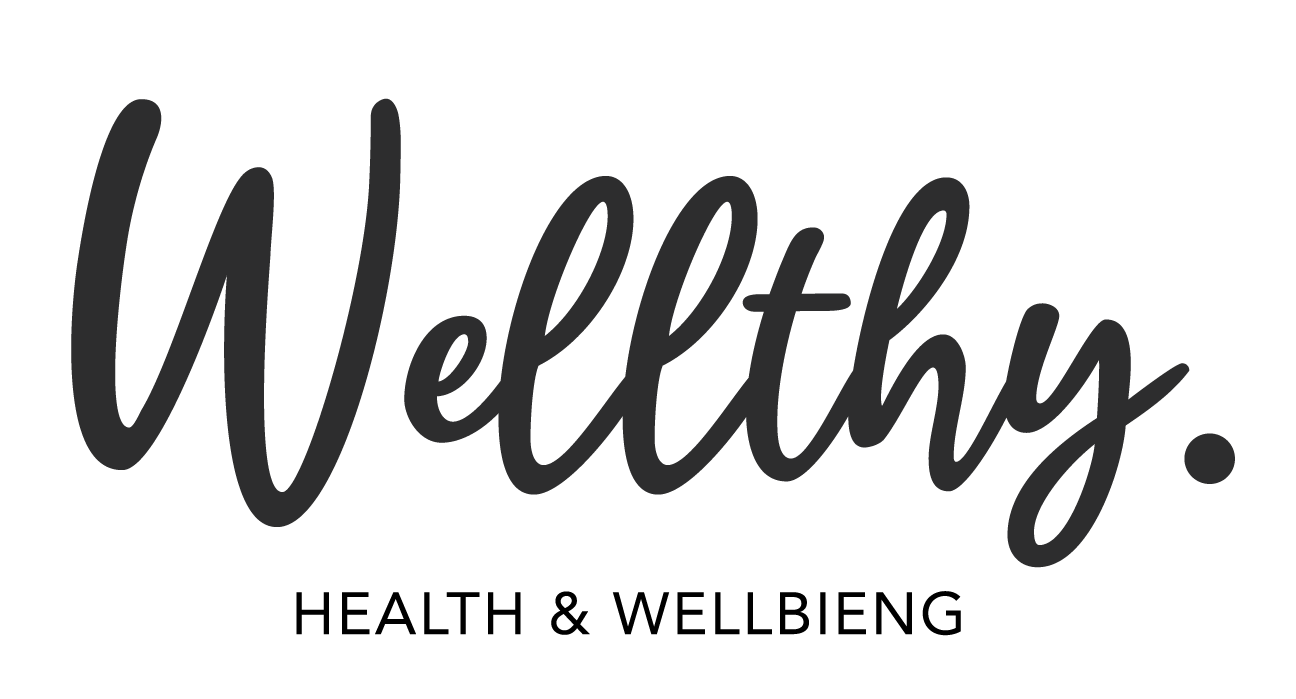Preventive health measures are the cornerstone of paving the path towards long-term wellness benefits, offering individuals the opportunity to proactively safeguard their health and quality of life. Have you ever wondered how simple actions today can lead to significant improvements in your future well-being and vitality? In this blog post, we delve into the importance of embracing preventive health measures and the transformative impact they can have on overall health outcomes. Let's explore the power of prevention and how it can shape a brighter, healthier future for us all.
Key Preventive Health Practices for Long-Term Wellness
Regular Health Screenings and Check-ups
Regular health screenings play a crucial role in early detection of potential health issues. By scheduling routine check-ups with healthcare providers, individuals can monitor their health status and take preventive measures accordingly.
Healthy Lifestyle Habits
-
Exercise: Engaging in regular physical activity can improve overall health and reduce the risk of chronic diseases.
-
Diet: Maintaining a balanced and nutritious diet is essential for supporting the body's immune system and preventing illnesses.
-
Sleep: Prioritizing sufficient sleep is key for both physical and mental well-being, as it allows the body to rest and recharge.
Stress Management Techniques
Chronic stress can have a detrimental impact on health. Implementing stress management techniques such as meditation, yoga, or deep breathing exercises can help reduce stress levels and promote overall wellness.
Vaccinations and Immunizations
Staying up to date with vaccinations and immunizations is vital for safeguarding against various preventable diseases and maintaining optimal health. Consult with healthcare providers to determine the appropriate vaccinations based on individual health needs.
Importance of Mental Health Awareness
Mental health is an integral component of overall well-being. Prioritizing mental health awareness, seeking therapy or counseling when needed, and practicing self-care can contribute to a balanced and healthy lifestyle.
Remember, integrating these preventive health practices into your daily routine can significantly impact your long-term wellness and lead to a healthier, happier life.
For more information on the importance of vaccinations, visit Centers for Disease Control and Prevention.
Integrating Preventive Measures into Daily Routine
Developing a Personalized Preventive Health Plan
Creating a customized preventive health plan involves assessing individual health needs, setting achievable goals, and incorporating strategies for maintaining overall well-being. Consider factors such as age, family history, lifestyle, and existing health conditions when formulating your plan.
Setting Achievable Health Goals
-
SMART Goals: Ensure that your health goals are Specific, Measurable, Achievable, Relevant, and Time-bound.
-
Tracking Progress: Use tools like health apps or journals to monitor your progress and stay motivated.
-
Consulting Professionals: Seek guidance from healthcare providers or nutritionists to tailor your goals to your specific health requirements.
Creating a Support System
Building a support system can motivate and hold you accountable for maintaining your preventive health measures.
-
Family and Friends: Share your health goals with close contacts who can provide encouragement and help keep you on track.
-
Online Communities: Join online health and wellness groups for additional support, advice, and motivation.
-
Health Coaches: Consider working with a health coach for personalized guidance and support in achieving your health goals.
Tracking Progress and Adjusting the Plan
Regularly assessing your health plan's effectiveness is crucial for making necessary adjustments and improvements.
-
Monitoring Biomarkers: Keep track of key indicators like blood pressure, cholesterol levels, and body weight.
-
Revisiting Goals: Reflect on your progress, reassess your goals, and make modifications as needed.
-
Seeking Feedback: Consult healthcare providers or fitness experts for feedback on your preventive health plan.
By integrating these preventive measures into your daily routine with a strategic approach, you can proactively manage your health and maximize long-term wellness benefits.
Overcoming Barriers to Implementing Preventive Health Measures
Addressing Financial Concerns and Accessing Affordable Healthcare Options
Finances can often be a significant hurdle in prioritizing preventive health measures. Look into available resources and programs that offer affordable healthcare services, such as community health centers, free clinics, or health insurance subsidies. Consider preventive care as an investment in your long-term well-being that can potentially reduce future medical costs.
Overcoming Time Constraints and Prioritizing Health in a Busy Lifestyle
Balancing work, family, and personal commitments can make it challenging to focus on health. Allocate time in your schedule for preventive activities like exercise, meal preparation, and relaxation techniques. Incorporate short, efficient workouts or healthy meal planning strategies to integrate preventive health measures seamlessly into your routine.
Dealing with Resistance to Change and Maintaining Consistency
Change can be intimidating, but starting with small, manageable steps can help overcome resistance. Set realistic expectations and celebrate even minor victories along the way. Establishing a routine and making preventive health practices a habit can lead to long-term consistency and positive outcomes.
Tips for Staying Motivated on the Preventive Health Journey
-
Celebrate Progress: Acknowledge and celebrate each milestone achieved on your health journey.
-
Find Joy in Activities: Engage in physical activities or healthy practices that bring you joy and fulfillment.
-
Reward Yourself: Treat yourself with non-food rewards for sticking to your preventive health measures.
-
Accountability Partner: Partner with a friend or family member to motivate each other and stay on track.
Embracing these strategies can help you overcome barriers and maintain a proactive approach to preventive health, ultimately reaping the long-term wellness benefits that come with prioritizing your well-being.
Long-Term Wellness Benefits of Prioritizing Preventive Health
Reduction in Chronic Diseases and Medical Expenses
Prioritizing preventive health measures can significantly reduce the risk of developing chronic conditions such as heart disease, diabetes, and certain types of cancer. By proactively managing your health through preventive screenings and healthy lifestyle choices, you may decrease the need for expensive medical treatments and medications in the future.
Improved Quality of Life and Longevity
Investing in preventive health measures not only safeguards your physical well-being but also enhances your overall quality of life. By maintaining good health habits, you can experience increased energy levels, better mood regulation, and improved cognitive function. Additionally, adopting preventive measures can contribute to a longer and more fulfilling lifespan.
Empowerment Through Proactive Health Management
Taking charge of your health through preventive measures empowers you to make informed decisions about your well-being. By staying informed about preventive screenings, vaccinations, and lifestyle choices, you can actively participate in preserving your health and preventing potential health complications.
Positive Impact on Mental Health and Overall Well-Being
Prioritizing preventive health not only benefits your physical health but also plays a crucial role in supporting your mental well-being. Regular exercise, healthy eating, and stress management techniques can reduce feelings of anxiety, depression, and overall stress. By nurturing both your physical and mental health, you can achieve a harmonious balance that contributes to long-term wellness.
Incorporating preventive health measures into your daily routine not only promotes a healthier life but also equips you with the tools and knowledge to enjoy long-term wellness benefits. Stay proactive, stay informed, and reap the rewards of a healthier and more fulfilling life journey.
Conclusion: Embracing Preventive Health Measures for a Brighter Future
Recap of Key Points Discussed
In this blog post, we delved into the significance of preventive health measures for achieving long-term wellness benefits. We explored various strategies and practices that individuals can embrace to proactively manage their health and support overall well-being.
Encouragement to Take Proactive Steps
As we conclude, it is essential to emphasize the importance of taking proactive steps towards prioritizing preventive health. By integrating preventive measures into your daily routine and seeking regular health screenings, you can lay a solid foundation for a healthier and happier future.
Inspiring Readers to Prioritize Well-Being
I encourage you, the reader, to reflect on the insights shared in this blog post and consider how you can implement preventive health measures in your own life. Remember that investing in your health today can lead to immense benefits in the long run, empowering you to enjoy a vibrant and fulfilling lifestyle.
For further resources and information on preventive health measures, continue to explore reputable sources and stay informed about the latest advancements in healthcare and wellness practices. Your journey towards long-term wellness begins with a proactive approach to preventive health measures. Start today for a brighter, healthier future.
External Resources for Further Understanding
Reputable Sources for Preventive Health Information
For those seeking additional guidance and information on preventive health measures for long-term wellness benefits, consider exploring resources provided by established healthcare organizations and reputable institutions. Below are some trusted sources for comprehensive insights:
-
Centers for Disease Control and Prevention (CDC): The CDC offers a wealth of information on preventive health, vaccinations, and disease control.
-
Mayo Clinic: Mayo Clinic provides reliable resources on preventive care, health screenings, and lifestyle recommendations.
-
National Institutes of Health (NIH): NIH conducts and supports research on preventive health measures and offers valuable health information for the public.
By exploring these authoritative resources, individuals can gain a deeper understanding of preventive health practices and make informed decisions to enhance their long-term wellness journey. Stay informed, stay proactive, and prioritize your well-being for a healthier future.
FAQ Section
How often should I undergo preventive health screenings?
Regular preventive health screenings should be scheduled based on your age, gender, family history, and overall health status. Consult with your healthcare provider to determine the appropriate screening schedule tailored to your individual needs.
Are vaccinations considered essential preventive health measures?
Yes, vaccinations play a crucial role in preventive health by protecting individuals from various infectious diseases. Staying up to date with recommended vaccinations can prevent illness and contribute to overall well-being.
What are some key lifestyle habits that promote long-term wellness benefits?
Healthy lifestyle habits such as regular exercise, balanced nutrition, sufficient sleep, stress management, and avoiding harmful habits like smoking are instrumental in promoting long-term wellness benefits and overall health.
How can I overcome financial barriers to accessing preventive healthcare?
Explore options such as community health centers, free clinics, health insurance subsidies, and preventive care programs to address financial concerns and access affordable preventive healthcare services.
Is mental health awareness considered a part of preventive health measures?
Absolutely, mental health awareness is a vital component of preventive health. Prioritizing mental well-being, seeking therapy when needed, and practicing self-care contribute to a holistic approach to preventive healthcare.

